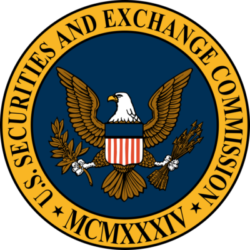
Joseph Michael Araiz, of New York, New York, the chief executive officer of Further Lane Securities, L.P., was fined $45,000.00 and suspended from associating with a Financial Industry Regulatory Authority in any principal capacity, and had his licensure revoked in connection with an Office of Hearing Officers’ Order Accepting Offer of Settlement containing allegations of excessive markups pertaining to corporate bond transactions and supervisory failures associated with such. Department of Enforcement v. Araiz, No. 20120342425 (Mar. 11, 2016).
According to the Order, between February 2012 and June of 2012, the firm and a representative, James “Gabe” Collard, charged customers with excessive markups in fifty-five corporate bond transactions through a representative. The Order indicated that during this time, Araiz was responsible for supervising Collard. Collard reportedly acted as a registered representative of an investment advisor, ABC, an entity owned by SH that provided investment services to customers.
The Order contained findings that Collard proposed to SH that ABC’s customers’ make investments in bonds with different interest rates, where proceeds from bonds maturing at different intervals be reinvested in other bonds at market rates. Collard’s strategy, referred to in the Order as bond laddering – was a strategy designed to mitigate interest rate risk in the bond market. Collard apparently proposed to SH the specific portfolio of bonds to be purchased, and relayed pricing and other information in charts and graphs to project the performance of his recommended portfolio.
The Order stated that Collard made arrangements with one of the firm’s traders to place limit orders in order to build the bond ladder, where the trader then executed on Collard’s trades and reported to Collard the execution prices associated with such. After the firm’s trader incorporated a markup regarding the transaction – such bonds were sold by Collard to one of SH’s retail customers in which a further markup was applied. The Order stated that in turn, ABC’s customers were charged two separate markups.
The Order alleged that excessive markups were applied in fifty-three transactions associated with ABC’s customers, while an additional two were applied with customers of DEF, another investment advisor. Collard reportedly used an identical approach with each bond latter transaction. According to the Order, the firm and Collard ultimately charged customers markups that ranged from just over three percent up to nearly seven percent, with an average of five percent.
According to the Order, the firm and Collard had sold the aforementioned bonds at prices which were unfair, when considering the market conditions, the firm’s profit expectations, expenses, and other circumstances concerning the securities. As such, FINRA found that the firm and Collard committed violations of FINRA Rules 2010, NASD Rule 2440, IM-2440-1, and IM-2440-2.
FINRA further found that the firm and Araiz (acting as chief compliance officer in addition to chief executive officer and Collard’s supervisor), failed to ensure that the firm properly supervised the markups applicable in Collard’s bond laddering transactions as required by NASD Rule 2440 and IM-2440. The Order stated that the firm and Araiz failed to design and implement adequate supervisory procedures and policies concerning corporate bond purchases and sales, as well as procedures concerning supervision of individuals such as Collard in order to comply with NASD Rule 2440 and IM-2440.
FINRA additionally found that the firm and Araiz failed to design and implement supervisory procedures and policies to ensure that markups would not be excessive. FINRA found that the supervisory procedures that the firm had in place failed to prompt a supervisor to review markups charged to customers in consideration of the securities’ prices, money involved in the various transactions, patterns and practices of markups, and the type of securities involved. FINRA found that the supervisory policies and procedures were not adequately designed to detect or prevent excessive markups.
Further, The Order stated that despite Araiz’s policy of reviewing Collard’s transactions on a daily basis, he nonetheless failed in detecting that customers were subject to two markups via Collard’s bond laddering strategy. Araiz reportedly never calculated the total markups to customers of ABC and DEF. The Order noted that Araiz, as the firm’s only owner, profited from excessive markups charged by Collard. As such, FINRA found that the firm and Araiz committed violations of FINRA Rule 2010 and NASD Conduct Rule 3010.
Public disclosure records reveal that Araiz has been subject to six disclosure incidents. On September 24, 2001, Araiz settled a customer dispute for $9,999.00 amid allegations of mismanagement and unsuitable recommendations.
On October 28, 2013, the United States Securities and Exchange Commission issued cease-and-desist proceedings against Araiz for non-disclosure of information to investors regarding his interest in a promissory note acquired by one of Araiz’s funds. SEC Admin Release 34-70759, IA Release 3707, Investment Company Act of 1940 Release 30767 (Oct. 28, 2013). Araiz reportedly acted as the advisor of a $2,000,000.00 fund-of-funds, where he apparently failed to inform investors that an in-kind redemption of a fund investment in an underlying fund would cause such fund to acquire a promissory note in a company that was owned by Araiz.
Araiz was additionally alleged to have engaged in various securities transactions with a broker-dealer, on a principal basis, without retrieving consent from clients. The SEC alleged that Araiz willfully violated The Investment Advisers Act Section 206(2); willfully aided and abetted Advisers Act Section 203(3); willfully violated Advisers Act Section 206(4) and Rule 206(4); and willfully violated Advisers Act Sections 206 and 207. Araiz was subject to a censure, $150,000.00 fine; disgorgement of $338,017.00; and suspended for twelve months.
On November 10, 2013, Further Lane Securities discharged Araiz in connection with the aforementioned SEC action. On December 11, 2013, The State of Michigan issued an order summarily suspending Araiz’s securities agent registration for 334 days.
On March 26, 2015, the SEC issued cease-and-desist proceedings against Araiz after alleging that he violated broker-dealer registration provisions of the Securities Exchange Act; particularly, through acting as an unregistered broker-dealer. SEC Admin Release 34-74586, Investment Company Act Release 40-31537 (Mar. 26, 2016). The SEC alleged that over a three-year period, participants purchased an estimated $4,800,000,000.00 in securities for a trading firm notwithstanding the lack of proper registration as broker-dealers, resulting in Araiz (among others) violating Section 15(A)(1) of the Securities Exchange Act. The SEC alleged that Araiz’s involvement as principal of an investment advisory that was purchasing and selling securities via the direction of the trading firm, was outside Araiz’s scope of employment with his member firm.
Guiliano Law Group
Our practice is limited to the representation of investors. We accept representation on a contingent fee basis, meaning there is no cost to you unless we make a recovery for you. There is never any charge for a consultation or an evaluation of your claim. For more information, contact us at (877) SEC-ATTY.






